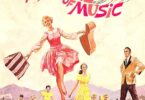ARTICOLE.
Un articol de Maria Levcenko, pe OpenDemocracy (în rusă şi engleză) despre protestele din centrul Chişinăului: «Мы против того, что правительство не реагирует на то, что украли миллиард, люди протестуют, никакой реакции на требования народа. Это неправильно. Все должно быть по закону. Пока правительство не выполнят наши требования мы отсюда не уйдем и будем ждать, когда они их выполнят», – говорит молодой человек. Его жена и ребенок ждут его дома с победой. «Они сидят и скучают, а мы вынуждены сидеть здесь. Потому что правительство не реагирует ни на какие наши требования. Они не реагируют на то, что воруют миллиард. Это неправильно. В стране должно быть все по закону». // ‘We’re against the fact that the government isn’t responding to the billion-dollar theft. People are protesting, and there’s no reaction to the demands of the people. That’s not right. Everything should be done within the bounds of the law. And until the government fulfils our demands, we won’t leave. We’ll wait till they do so,’ says Sergei, whose wife and child are waiting for him at home.”
Lucia Bacalu scrie, în Observatorul de Ungheni, despre reformele din administrația publică și învățămînt: ”Deci, domnișoara viceministră, cu o față luminată, vorbea despre unele reforme. Și ce mai reforme! Ale direcțiilor de învățămînt, care se vor numi așa cum vor dori cei din teritoriu. Să fie! Altceva m-a deranjat. Cică, se va majora numărul angajaților în aceste ”organe în domeniul învățămîntului”, care se vor numi așa cum vor vrea cei din teritoriu. Hai că-i bine! Închidem școli, transformăm licee în gimnazii, copiii sînt din ce în ce mai puțini, iar noi mărim numărul funcționarilor. Cică, spunea domnișoara viceministră, mai e nevoie de un serviciu de presă în aceste organe. Pentru ce? Vreți imagine? Creați-o prin atitudinea tranșantă față de neregulile din domeniu! Și mai avem nevoie în aceste organe de un serviciu de audit. Iaca na! Deoarece avem prea puține servicii de control, haideți să mai creăm unul. Special pentru direcțiile de educație. Să înmulțim armata de birocrați!”
Ziarul de Gardă a făcut o investigație despre nepotismul din sectorul justiției: ”Un membru al familiei este avocat, iar altul — judecător. Justiţia din R. Moldova, cunoscută pentru cumetrismul şi nănăşismul de care este împânzită, se confruntă cu un alt fenomen care-i pune în pericol integritatea. În multe familii, dacă soţul sau soţia este judecător, atunci cel puţin unul din ceilalţi membri ai familiei este, aproape sigur, avocat. Avocat care apără inculpaţi, inclusiv în faţa rudelor şi prietenilor aflaţi în fotoliu de judecător. De multe ori, asemenea situaţii deloc sănătoase nasc suspiciuni întemeiate, iar uneori, şi dosare penale.
Am participat, săptămîna trecută la două emisiuni: Alb&Negru la Unimedia (marți, ora 16.00) unde am abordat chestii generale despre situația din țară și Politica cu Natalia Morari (TV7, marți, ora 21.00), unde am discutat proiectul unionist (V.S.).
Ivan Krîstev despre cum poate fi evitată disoluția proiectului european: ”On the European level, a new paradox has also emerged as a result of both the European crisis and the situation in Ukraine. In recent years we have witnessed the Europeanization of broad policies while we see an emergence of a renewed national sentiment on the nation-state level. Citizens across Europe are beginning to feel frustrated with the EU. You can see how solidarity and borders can be redrawn. Germans are not ready to do for the Greeks what they did for East Germans in the 1990s. What is more, Germany’s approach to Greece was not a decision of one government or one party; there was a general consensus in Germany towards Greece. And this sentiment is not limited to Germany, but most of the EU states as well. (…) In June 2013 there was another wave of protests that was much more centred on Sofia. This protest was against the seemingly unimaginable appointment of Delyan Peevski, a Bulgarian oligarch, to head the Bulgarian security agency. Hundreds of thousands of people once again came out to the streets with no political party or trade union affiliation. The protesters carried EU flags and demanded to be treated like Europeans. But when comparing these two protests, it would be wrong to say that there are two Bulgarias (one pro-EU and one more nationalist). In fact many of those involved in the first protests were also involved in the second one. Both Europe and nationalism became a way for the people to seek accountability on the side of the elite. Both of the protests had the same basic feeling – that perhaps we are now freer than before, but we have lost power over our elite. From this point of view, the best chance that the EU has for success is when the people see it as an instrument to gain control over the elite and not as a haven for the elite. If it becomes the latter, we will see an even greater level of frustration between the elite and the people. This is the lesson that Europe’s leaders need to understand today. If this lesson is not learnt, we will see the disintegration of the project in the future.”
Un dosar de articole în Dilema veche despre solidaritate socială, dar toate pronunţate însă de pe poziţii neoliberale şi conservatoare.
Tot în Dilema Veche, Cristian Ghinea se întreabă cum a fost posibil în RM furtul unui miliard, duipă care încearcă să răspundă. Şi în sfîrşit dă şi soluţia, aceeaşi: „Există soluţii? Da, liberalizarea pieţelor, dereglementarea, politici agresive antimonopol, privatizarea cu investitori strategici.”
Un excelent interviu, în El Pais, cu Stephen Hawking despre univers, existența lui dumnezeu: ”Q. You said God is unnecessary to explain the universe as it is. Do you think humans would one day abandon religion and God?
A. The laws of science are sufficient to explain the origin of the universe. It is not necessary to invoke God.”
Ministrul francez al comerțului, Mathias Fekl, a avertizat că negocierile privind Parteneriatul Transatlantic pentru Comerț și Investiții (TTIP) între UE și SUA au loc într-un mod netransparent. ” Talks between the European Commission and US authorities are going on “in a complete lack of transparency and a big opacity, and this poses a democratic problem,” Fekl said in an interview with French regional newspaper Sud Ouest published Monday (28 September). “US parliamentarians have access to many more documents than European parliamentarians,” he said, adding that Europeans can have access to the documents only in a secured room at the US embassy. Negotiations for the so-called Transatlantic Trade and Investment Partnership (TTIP) started in July 2013 and will not be completed this year, as previously expected by the EU. “Europe made multiple offers, on all issues, and in return got no serious offer for the Americans, neither on access to their public procurements, nor on access to agricultural and food-processing markets, which remain closed,” Fekl detailed.”
În legătură cu TTIP mai multe voic spun că acest acord ar conține mai multe prevederi nedemocratice. În Moldova discuția e inexistentă însă în România și UE există o puternică comunitate ce contestează prevederile TTIP și cere chiar suspendarea acestuia.
Un articol interesant de Carmen Rios, publicat iniţial în Everyday Feminism (preluat de OpenDemocracy) şi scris din experienţă proprie şi cea a familiei (în principal a mamei), despre cum judecă şi cum supravieţuieşte un om sărac (faţă de, implicit, cum gîndeşte şi cum îşi planifică viaţa un om bogat): „I grew up with my brother in a working-class home headed up by a single mother. We were rich in love and support and – because of Mom’s passion for baking – cheesecake.// But we were not rich in money.// Watching my mother struggle to make ends meet fundamentally changed my relationship to money, even to this day. // Over the years, I’ve realized that it isn’t just poor people’s lives which differ from rich people’s lives – it’s poor people’s thoughts that differ from everyone else’s. // Being poor means that every worry is secondary to money. It means that every experience is centered around money. It makes money, which is ironically something you possess little of in contrast to other people, more central to your everyday life than theirs.”
George Monbiot: știrea despre existența apei pe Marte este excelentă, însă ar trebui să vedem cît mai multe știri și reflecții despre cît de proastă e situația ecologică pe Terra. ”Every year, clever new ways of wasting stuff are devised, and every year we become more inured to the pointless consumption of the world’s precious resources. With each subtle intensification, the baseline of normality shifts. It should not be surprising to discover that the richer a country becomes, the less its people care about their impacts on the living planet. Our alienation from the world of wonders, with which we evolved, has only intensified since David Bowie described a girl stumbling through a “sunken dream”, on her way to be “hooked to the silver screen”, where a long series of distractions diverts her from life’s great questions. The song, of course, was Life on Mars.”
CĂRȚI.
Kevin Murphy. REVOLUTION AND COUNTERREVOLUTION. Class Struggle in a Moscow Metal Factory (Haymarket Books, 2005). Iată o carte necesară care aruncă lumină asupra istoriei relației muncitorilor cu puterea sovietică în primul deceniu al existenței acesteia. Pornind de la istoria concretă a unei fabrici metalurgice din Moskova, autorul încearcă să răspundă la întrebarea: cum se face că, proletariatul rus, poate cel mai nărăvaș și mai nedisciplinat proletariat european la începutul sec. XX, a ajuns să fie dominat total, în nici mai puțin de un deceniu, de către aparatul de stat și cel de partid sovietic. Murphy nu crede explicația care spune că motivele acestei ”resemnări” stau în teroarea stalinistă dar nici pe cele care afirmă că muncitorii ar fi fost ”seduși de la început” de proiectul sovietic. Realitatea e undeva la mijloc, argumentează autorul: slăbirea proletariatului și a organelor sale (sindicatele, asociațiile profesionale) în timpul primilor ani sovietici, a depins de mai mulți factori: lupte intestine în sînul partidului (care au făcut ca anumiți lideri, favorabili unei autonomii mai mari a sindicatelor și sovietelor, să fie marginalizați), trecerea statului la o logică productivistă (un fel de capitalism de stat în care scopul principal era nu echitatea socială și solidaritatea, ci sporirea producției), fragmentarea țesutului social ca urmare a NEP-ului și colectivizării forțate (a adus mulți țărani la oraș, în fabrici, și i-a dezrădăcinat de contextul lor tradițional fără a le ofieri însă legături de solidaritate echivalente). Rezultatul a fost că, la începutul anilor 30, organizația excelentă a proletariatului rus, care făcuse atîta bătaie de cap autorităților țariste, se dezintegrase iar muncitorii ruși nu mai erau decît o masă amorfă, ușor de condus și fără structuri proprii de rezistență în fața abuzului de stat și de partid. (V.S.)
AFIȘ.
Asociația Oberliht organizează, între 6-10 octombrie, prima ediție a Zilelor Spațiului Public – o serie de evenimente dedicate temei spațiului public în Moldova și în regiune. Programul evenimentului poate fi consultat aici.
La 23 octombrie, la Teatrul de Vară din Chișinău, va avea loc Festivalul de hip-hop „Hip-Hop Ș-așa”, în cadrul căruia vor evolua interpreți din Moldova, România și Rusia. Festivalul se află la prima ediție.
imagine de fundal: NASA a confirmat existența apei pe Marte.
sursă imagine:









